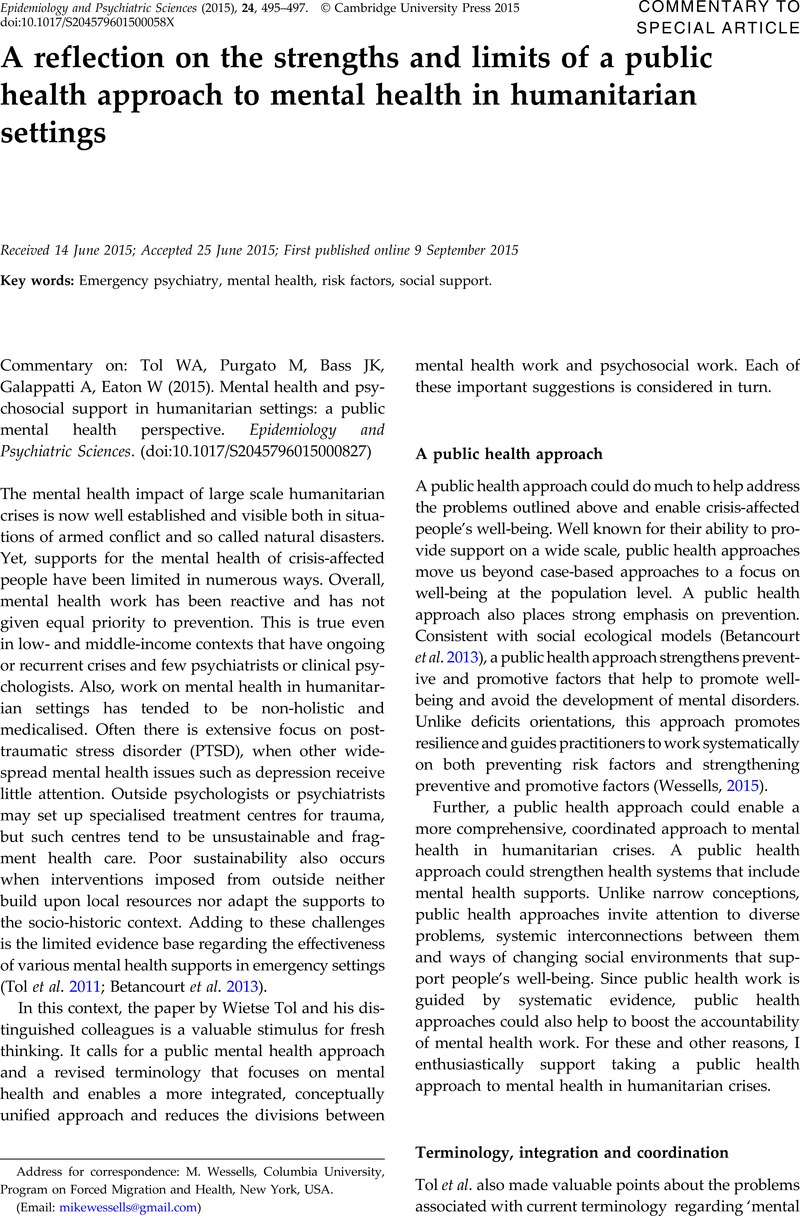Crossref Citations
This article has been cited by the following publications. This list is generated based on data provided by Crossref.
Barbui, C.
Dua, T.
Kolappa, K.
Saraceno, B.
and
Saxena, S.
2017.
Mapping actions to improve access to medicines for mental disorders in low and middle income countries.
Epidemiology and Psychiatric Sciences,
Vol. 26,
Issue. 5,
p.
481.
Nosè, Michela
Ballette, Francesca
Bighelli, Irene
Turrini, Giulia
Purgato, Marianna
Tol, Wietse
Priebe, Stefan
Barbui, Corrado
and
Schmahl, Christian
2017.
Psychosocial interventions for post-traumatic stress disorder in refugees and asylum seekers resettled in high-income countries: Systematic review and meta-analysis.
PLOS ONE,
Vol. 12,
Issue. 2,
p.
e0171030.
Weissbecker, Inka
Hanna, Fahmy
El Shazly, Mohamed
Gao, James
and
Ventevogel, Peter
2019.
An Uncertain Safety.
p.
117.



